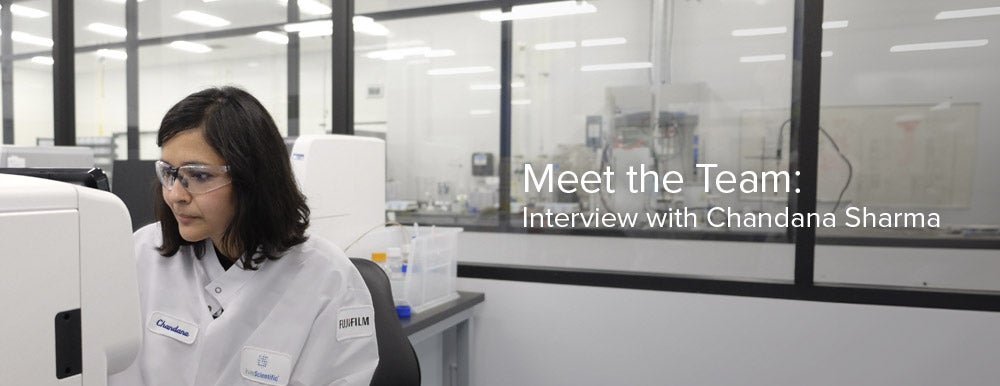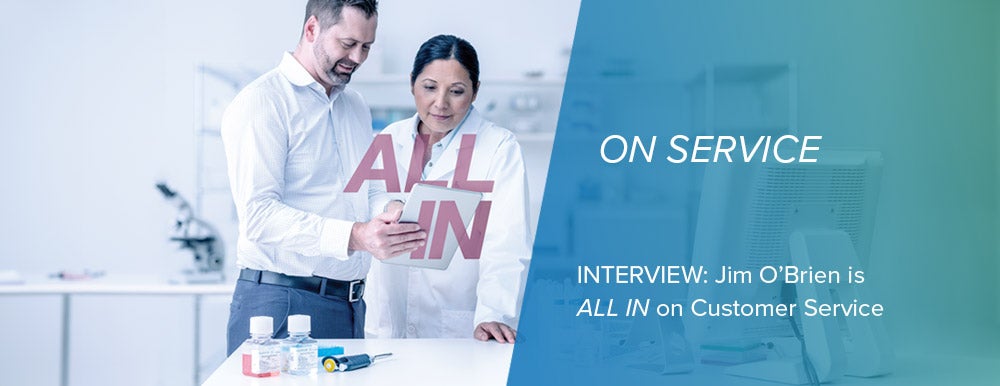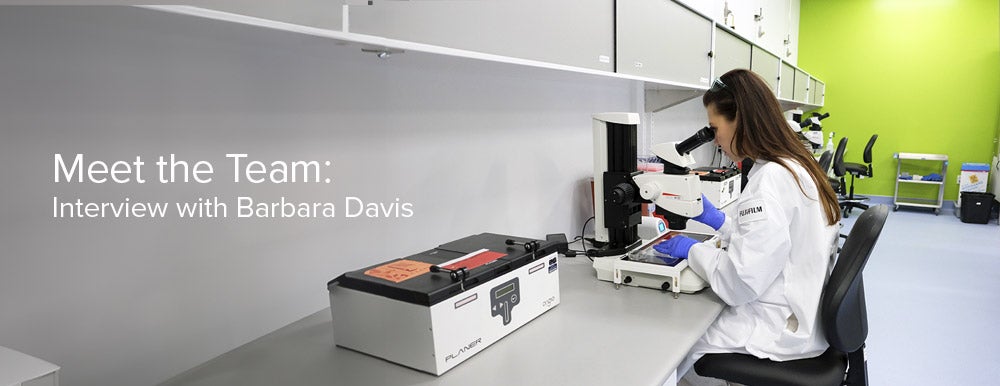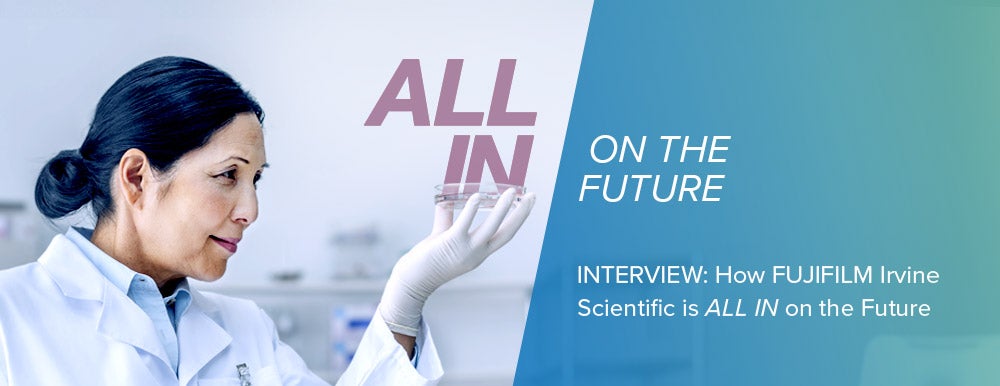We use cookies to make your experience better. To comply with the new e-Privacy directive, we need to ask for your consent to set the cookies. Learn more.
Simplifying Media Preparation Through Application of Manufacturing Science and Technology
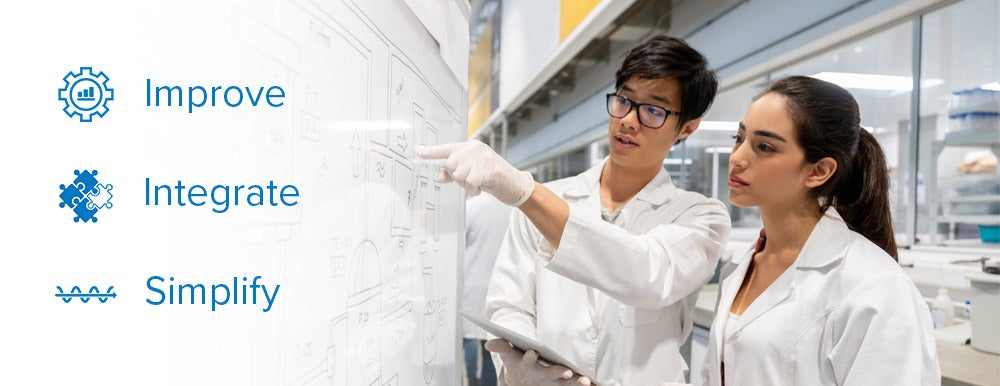
Interview with Tom Fletcher, R&D Director, Process Development, FUJIFILM Irvine Scientific
Bioprocessing manufacturers face many challenges along the path towards commercialization. Hydrating cell culture powdered media is one area where manufacturers dedicate a significant portion of time and effort, that could otherwise be used to make biologic drugs, therapies, and vaccines. FUJIFILM Irvine Scientific recently sat down with Tom Fletcher, R&D Director, Process Development, to discuss the new Manufacturing Science and Technology (MSAT) service available to bioprocessing and cell and gene therapy manufacturers that helps streamline processes and provides reliable systems to simplify media preparation.
Why do users want to simplify their bioprocess solution preparation processes?
The process of hydrating powdered media, while necessary, can be a multi-step ordeal. The right methods for combining components such as water, amino acids, and nutrients must be consistently utilized. The process also includes benchmarking media batches to meet the expected targets for effectiveness, in addition to the labor costs associated with making media. These steps take a considerable amount of hours that users could have to make their drug substance. Simplifying the media-making process helps users realize these time-reduction goals. With MSAT, we aim to help users reduce the amount of time spent hydrating media by streamlining workflows, and lowering costs associated with this process, while improving the reliability of media.
How does FUJIFILM Irvine Scientific help with simplifying these processes?
We have over 50 years of experience developing media and streamlining the processes for preparing media. Cell culture media is our core business, and we know there are optimal and less optimal processes. During an MSAT project, we map a user’s process and look at which steps do not add value. We apply our experience to help minimize adjustments, additions, and the amount of human intervention needed to prepare media and ultimately reduce variation. For example, an overly complicated buffer prep may be removed. Because we have been working with media and processes for so long, we know how to solve issues by identifying which steps work and eliminating those that do not. Essentially, we help users do what they do best—make bulk drug substances.
How does one go about simplifying the media preparation process? What constitutes success?
We aim to help users speed-up preparation and improve the reliability of their media. By simplifying the preparation of media, we make that process more reliable. Reducing the amount of human intervention creates a more reliable, efficient media preparation process. For example, the powder formula can be engineered to meet the desired pH and osmolality requirements immediately upon hydration, without requiring any human intervention adjustments. We can also minimize the number of additions by engineering the formula with respect to an appropriate grouping of the ingredients.
A media solution may also be packaged as components in specific measures to reduce the steps required for solubilizing media. For example, medium ingredients, soluble at high pH and those at low pH, can be grouped to simplify the process. We reconfigure and reorganize the materials in premeasured quantities to best enhance the efficiency and reliability of the media preparation process. Either a user’s formulation, or one from FUJIFILM Irvine Scientific, can be used for an MSAT project.
Does MSAT alter the formula? What are some of the components of a medium that can be adjusted to improve it?
When we begin an MSAT project, we often do not plan to modify the final formula. Instead, we aim to simplify the process through changing the method of preparation and suggesting alternative forms of nutrients—achieving an equivalent result at the end of the preparation process. For example, we might use alternative forms of an ingredient, such as a sodium salt or hydrochloride, to achieve an improvement in solubility. We might also reduce a five-part medium to three parts for ease of use and include premeasured amounts in each package so the user can take the labeled packages and combine them. Processes can also be automated entirely in many cases. The ultimate goal is to achieve an equivalent result with less effort and less risk.
What kind of support will FUJIFILM Irvine Scientific provide when I want to evaluate the new process? What are the options for scale-up?
A user’s new process is designed to be scalable. Pilot lots of media can be made with our Express Media Service to evaluate the new preparation process; however, there may or may not be a need for a pilot lot.
What is the next step when the MSAT project results in a "new and improved" media preparation process?
After we present the results of an MSAT project, the user can decide to continue with the old workflow or proceed with the new one that will save time and money and provide more reliability. We offer options to purchase newly configured combinations of components and methods of how to put them together.
We see MSAT as part of our responsibility as a full-service media partner. In building a strong relationship where we work as a team, we develop a trusting collaboration to help the user become more successful.





